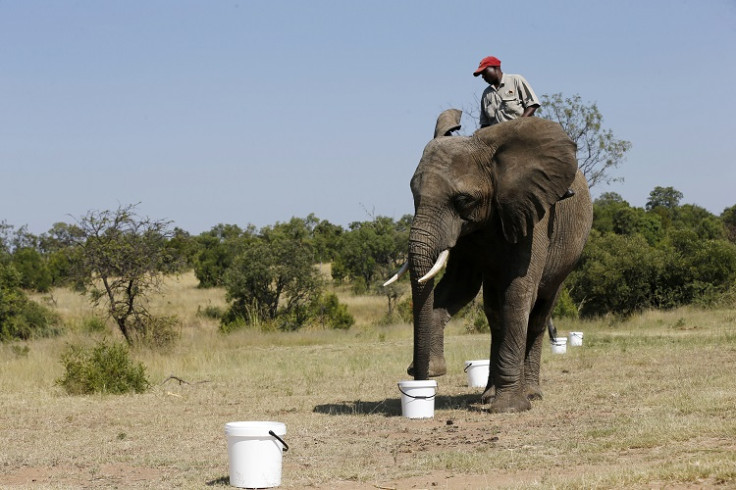GI Jumbo: US Army train elephants to sniff out bombs and biological weapons

Elephants are being trained by the US army to detect explosives, landmines and biological weapon in South Africa.
The five-year project, supported by the US Army Research Office, is the brainchild of game ranch operator Sean Hensman, who noticed the uncanny sensory abilities of the mammals while growing up in Zimbabwe.
Last week, Reuters reported, a test run of a 17-year-old male elephant named Chishuru was carried at the Adventures with Elephants game ranch in Mabula, northwest of Johannesburg.
It walked past a row of buckets and had to detect which one had been laced with TNT scent at the bottom of one of them.
Amazingly as it stuck its truck into each bucket it stopped and raised a front leg when it sensed the one with the swab.
And as a reward like a sniffer dog it was given a marula – a favourite fruit that elephants love.
"An elephant's nose is amazing. Think about mammoths, which had to find food through the ice," said Hensman which runs Adventures with Elephants, a game ranch located 110 miles from Johannesburg where the training is taking place.
Hensman's father once trained 12 elephants for anti-poaching patrols in Zimbabwe after a female member of the herd managed to track him.
But scientists predict a potential better use for elephants to detect biological weapons in years to come.
"We could bring scents from the field collected by unmanned robotic systems to the elephants for evaluation," said Stephen Lee, chief scientist of the US Army Research Office.
When asked who has the better nose, the dog or the elephant?
"In our work I don't believe we have a firm conclusion. We would like to better quantify this," Lee said.
© Copyright IBTimes 2025. All rights reserved.






















